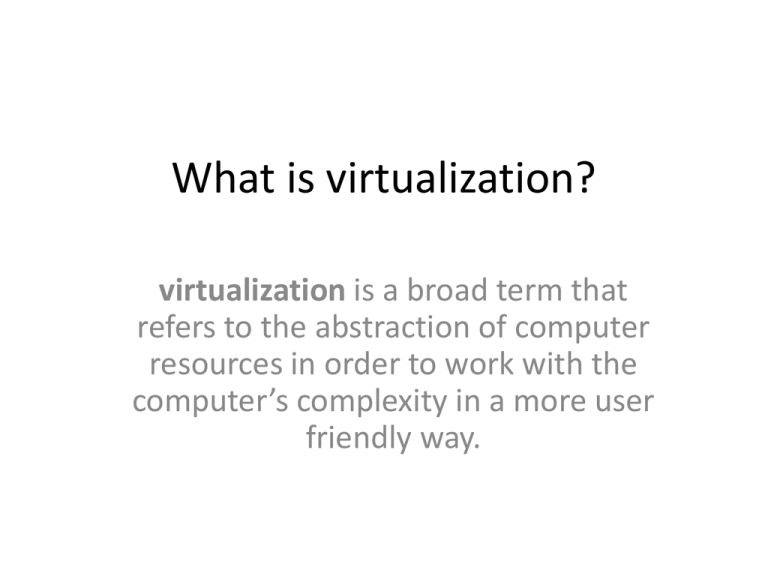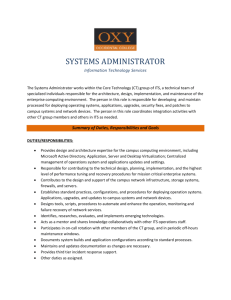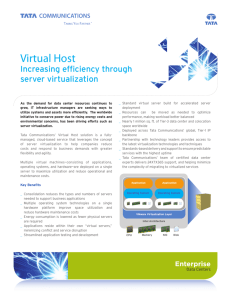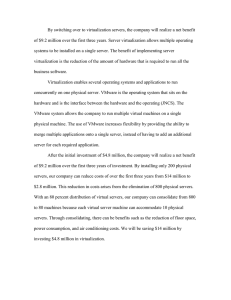What is virtualization?
advertisement

What is virtualization? virtualization is a broad term that refers to the abstraction of computer resources in order to work with the computer’s complexity in a more user friendly way. Why Virtualization? • Virtualization software lets a single computer run several copies of operating systems at the same time machine. This turns a single machine into a number of different computers thus increasing hardware utilization and the flexibility of the system. Virtualization is changing the way corporations and home users use their computers. Background on Virtualization • Different Kinds of Virtualization – – – – – – Server Virtualization Operating System Virtualization Application Virtualization Storage Virtualization Data/Database Virtualization Network Virtualization Positives of Virtualization • Increased efficiency – – – • Improved security and data recovery – – • A main focus of Virtualization is the ability for groups (mainly businesses) to be more efficient Virtualization is, perhaps, the most effective tool for increased efficiency in many large group scenarios Instead of dealing with large, manual hardware issues, a problem can be dealt with remotely Multiple servers = more difficult to hack Because the servers are not as hardware reliant, a lost file can be restored by the use of a different hardware Decreased long-term costs – – Ultimately virtualization will decrease the need for hardware replacement and maintenance Decreased costs in maintenance and hardware overall will allow businesses to focus funds on other initiatives Negatives of Virtualization • Short-term Cost – – – – New infrastructure Time to configure Requires special skills These factors limit scope and timing of initiative, but a solution can usually be found • Lack of Redundancy – Failure of one piece of hardware will influence others – Backup systems are necessary, but usually easy to put in place • Increased Overhead – Insertion of software layers between resources affects processor cycles – Can range from 2 or 3% to 20 or 30% – Inherent increased efficiency can more than make up for this problem Final Opinion The benefits of virtualization are significant and compelling. The negatives can be neglible if the system is set up properly. So, with careful consideration of timing, methods and configuration, virtualization can be beneficial to almost any IT system. To ensure that the benefits outweigh the risks, it is important to plan the project with its goals and environment in mind. It should be timed in such a way that initial costs can be absorbed. Backup systems are necessary, but these can be simplified due to the isolation inherent in virtual systems. With careful planning, however, virtualization is nearly universally good.



